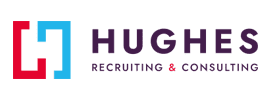Many think the right qualifications and experience will land them a job, but hiring managers look beyond your resume. They also evaluate your skills and how well you will fit in with the company during the interview.
Interviews are a staple in any job application, and crucial to landing the job you want. To make a good impression, get ready with proper research, practice, and personal presentation.
Roadmap to Success
Interviewing for a new job can be really exciting, but also really nerve-wracking if you’re not ready.
Coming prepared helps you look more confident and qualified for the role. You can easily project yourself as a professional, someone capable of stepping into the role.
Preparation can make all the difference when it comes to landing the job. How do you prepare for an interview with a recruiter or hiring manager? Once you receive the invitation, use this guide as your roadmap towards a successful interview:
1. Do Your Research
The strongest foundation of a successful interview performance is research. Take time to learn about the company you want to join. Going in with information about their organization not only makes you stand out to an interviewer but also helps you feel more equipped to handle the interview itself.
Conduct research by learning about the company’s history.
- Visit their website and keep an eye on their vision and mission.
- Learn more about their recent achievements as well as their long-term or short-term goals.
- Explore available resources that can help you figure out the culture and environment within their offices.
Aside from company details, pay attention to the role you’re applying for and the industry the business belongs to.
- Analyze the job descriptions in detail. Try to figure out how that position fits into their processes.
- Research about current industry trends. This can help you gain a broader perspective on the market landscape while giving you more details you can use in your interview conversations.
2. Master Your Resume
Think of your resume as your marketing tool. It’s important that you know its content from start to finish. Interviewers tend to use your submitted application as a guide for their interview questions. So, make it a point to review your resume thoroughly. Be ready to discuss any achievement, skill, or experience in detail.
To further prepare, identify key accomplishments from your previous role that are related to the position you’re applying for. This will help you provide concrete examples of your abilities that can be useful for your target company.
Anticipate potential questions about your resume. You may have a wide work gap or a sudden career change. Be ready to explain them with honesty. It’s best to also address any potential concerns related to these experiences.
3. Practice Sample Questions
Job interviews are all about answering questions. Regardless of whether you’re invited to video interviews or phone interviews, you still need to answer any questions effectively. This can be stressful for many candidates.
To help you answer calmly on the day of the interview, practice your responses beforehand.
With today’s access to technology, you can utilize online tools that provide common questions to prepare for. Ensure that the questions you’ve researched or those being generated for you are directly related to the role you’re vying for.
Grab a friend or family member and practice common interview questions a day or two before your interview. This can help you feel more comfortable with the entire process. If you don’t have someone to practice mock interviews with, you can respond to queries in front of a camera or a mirror. Observe your body language and facial expressions while responding.
4. Develop Your Personal Brand
The goal of any interview is to find the best fit for the role. With this in mind, it’s important to highlight what makes you different from the rest of the candidates.
Here are a few steps to develop your personal or professional brand.
- Identify your unique selling points.
- Reflect on your skills, experiences, and personal qualities.
- Pinpoint those that make you a perfect fit for the role or organization.
- Ensure that your personal brand is aligned with what the company needs.
- Based on your research, prepare to share attributes that can contribute to their goals and culture.
Moreover, show ambition in developing yourself aligned with the company’s growth trajectory. Connect your personal brand to what the business needs.
For example, the company you want to apply for is in the light industrial field. Your personal brand could be:
A dependable, efficient warehouse supervisor with over 6 years of experience, excelling in managing teams and streamlining operations.
Keep your personal brand in mind as you go through your interview.
5. Dress Appropriately
According to an article published in Inc, 71 percent of employers forget to include the dress code memo.¹ Double check the invitation you received. If there is no available memo, remember this simple tip: When you are dressed your best, you perform your best.
Make sure you know what type of job you are applying for and dress accordingly.
- If you are applying for a light industrial job, clean jeans and a collared shirt are appropriate.
- If you are applying for a clerical or administrative job, wear a buttoned shirt with a skirt or slacks.
- Wear clean and professional shoes.
Aside from clothing, pay attention to proper grooming.
- Ensure that you have neat hair and trimmed nails.
- Avoid overusing perfumes or make-up.
- Mind your posture as well. Remember that confidence shows!
Your appearance communicates your professionalism and attention to detail, so it’s best to choose an outfit that makes you feel and look confident.
6. Carefully Plan Your Interview Day
Meticulous planning for your interview day can significantly reduce your stress and improve your interview performance. It helps you avoid unnecessary delays or worries throughout the day.
- Plan your route to the interview location in advance. Account for traffic and potential delays to ensure you won’t be late for your schedule.
- Aim to arrive 10 to 15 minutes early so that you have some time to catch your breath and mentally prepare.
- Have everything you need for your interview ready ahead of time. This may include copies of necessary documents to your portfolio.
This step of interview preparation will prevent you from forgetting anything important at home.
Read more: What to Bring to Your Interview at Hughes
7. Practice Interview Etiquette
Great outcomes stem from more than answering interview questions. Make a positive impression during your interview by practicing interview etiquette.
- Greet your interviewer with a firm handshake.
- Maintain eye contact throughout the conversations.
- Practice active listening to create an engaging conversation.
Thoughtful questions deserve relevant responses, so it’s vital that you always understand the question. Don’t be afraid to ask for clarifications when necessary.
Additionally, prepare a few insightful questions to ask at the end of the interview. This demonstrates your genuine interest in joining the company through the role you’re applying for.
Plan for timely and effective follow up after the interview. For example, send a thank-you email within 24 hours that references specific points from your conversation.
Read more: How to Seal the Deal After Your Interview: A Comprehensive Guide
Find the best opportunities with Hughes Recruiting & Consulting.
Having difficulty securing an interview schedule? Hughes Recruiting & Consulting is here to connect you with companies that need your skills. Put us to work finding you work!
Begin a conversation with us today to start your next career journey.
Last updated on November 20, 2024.
References
- Thibodeaux, Wanda. “90 Percent of Interviewers Would Disqualify a Job Candidate for This 1 Reason.” Inc, 3 May 2018, www.inc.com/wanda-thibodeaux/90-percent-of-interviewers-would-disqualify-a-job-candidate-for-this-1-reason.html.

























